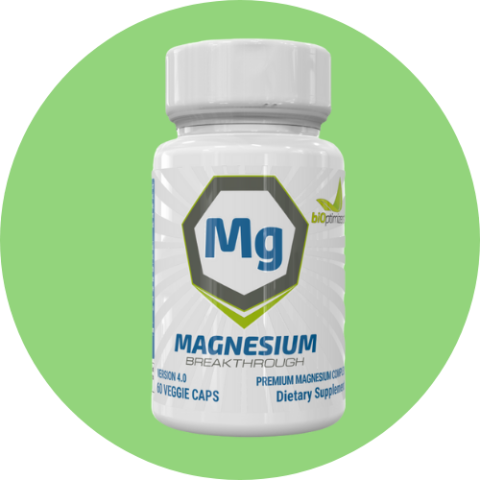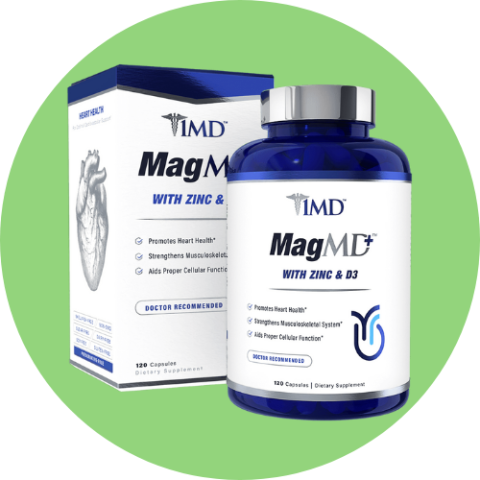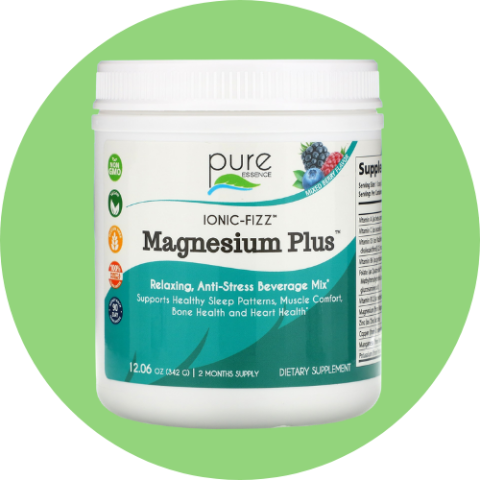Magnesium is one of the most essential minerals in the body. There are many different types of magnesium, each with its unique set of benefits.
It’s necessary for over 300 biochemical reactions, including energy production, muscle and nerve function, and muscle relaxation. Yet many people are unaware of its importance and the different types available.
Magnesium deficiency can cause many symptoms, so it’s essential to know the different magnesium supplements available.
We will explore the different types of magnesium and their benefits. By the end of this post, you’ll better understand which type of magnesium is best suited for your needs.
So, let’s get started
Following are 11 types of magnesium and their uses.
1. Magnesium Citrate
Magnesium citrate is a popular dietary supplement that is used to treat a variety of conditions. Although magnesium is found in many foods, it is often difficult to get enough through diet alone.
It is a highly bioavailable form of magnesium easily absorbed by the body. This makes it an ideal supplement for people who are deficient in magnesium.
Magnesium citrate can also be used as a natural laxative. This is because magnesium citrate binds to water in the intestine, which helps to soften the stool and stimulate bowel movements.
For this reason, magnesium citrate is often taken before colonoscopies and other medical procedures. In addition, magnesium citrate has been shown to relieve constipation, indigestion, and heartburn.
2. Magnesium Oxide
Magnesium oxide is a solid white mineral that is frequently used as a laxative or antacid. It can also be used to treat heartburn, indigestion, and diarrhea.
In addition, magnesium oxide is sometimes used as a dietary supplement to help maintain a healthy stomach and intestines.
Magnesium oxide may also be used to prevent or treat migraines.
However, it is important to speak with a doctor before taking magnesium oxide, as it can interact with certain medications and have side effects. When taken as directed, magnesium oxide is generally considered safe and effective.
3. Magnesium Chloride
Magnesium chloride is a type of salt that contains chlorine. It is effectively absorbed in the digestive tract which makes it a multi-purpose supplement.
Magnesium chloride can be taken in capsule or tablet form or used topically in lotions and ointments to soothe sore muscles. However, little scientific evidence suggests that using magnesium chloride topically improves magnesium levels.
Magnesium chloride is commonly used to treat decreased magnesium levels, heartburn, and constipation
4. Magnesium Lactate
Magnesium Lactate is one of the dietary supplements that is made when magnesium binds to lactic acid. It is used to improve digestion and promote better absorption of nutrients.
It helps reduce the acidity in the stomach, allowing for the easier breakdown of food and more efficient uptake of vitamins and minerals.
Magnesium Lactate is beneficial for people suffering from digestive problems such as heartburn, indigestion, or irritable bowel syndrome (IBS). It can also help relieve constipation and reduce bloating.
Magnesium Lactate helps to boost the body’s energy levels by supplying it with a source of easily absorbable magnesium.
This mineral is essential for proper nerve and muscle function and for balancing the body’s production of hormones. It may also help reduce stress and anxiety
5. Magnesium Malate
It is a magnesium compound, and malic acid is naturally found in apples. Magnesium malate is thought to be well absorbed by the digestive tract and can be a good option for restoring magnesium levels.
It is often used as a supplement to help with conditions such as fibromyalgia and chronic fatigue syndrome.
Magnesium malate is thought to work by providing additional magnesium for the body. Magnesium is an essential mineral that plays a role in many cellular processes.
It is also believed that malic acid may help increase energy production in cells.
6. Magnesium Taurate
Magnesium Taurate is a supplement that provides magnesium and taurine. This is a mineral essential for many biochemical reactions in the body, and taurine is an amino acid with many important functions.
Magnesium Taurate has several potential benefits, including reducing blood pressure, improving heart health, and reducing inflammation. It may also help to improve cognitive function and reduce anxiety.
Magnesium Taurate is well-tolerated and side effects are rare. However, it is important to talk to a healthcare provider before taking any supplements, especially if you have a health condition or are taking medications.
7. Magnesium L-threonate
This is a dietary supplement sometimes used to improve cognitive function. Magnesium is a mineral in many body processes, including energy production, muscle contraction, and nerve function.
L-threonate is a form of vitamin C that is absorbed more easily by the body. Some research suggests that magnesium L-threonate may help to improve memory and learning, although the evidence is not definitive.
It is thought that magnesium L-threonate may work by increasing magnesium levels in the brain.
This, in turn, may help to protect brain cells and promote neuronal growth. More evidence is needed to confirm the potential benefits of magnesium L-threonate.
However, it appears safe for most people, and it may offer a promising way to improve cognitive function.
8. Magnesium Sulfate
Another type of magnesium, Magnesium sulfate, commonly known as Epsom salt, is a white substance with the same texture as table salt.
Magnesium sulfate can be taken orally to relieve constipation, although the unpleasant taste of this salt often leads people to seek alternative digestive support.
Additionally, It is frequently dissolved in bathwater to provide relief from sore muscles and reduce stress. Some skin care products, such as body oil or lotion , also contain magnesium sulfate.
However, there is limited evidence to suggest that this form of magnesium can be effectively absorbed through the skin.
9. Magnesium Glycinate
Magnesium glycinate is a popular dietary supplement often used to improve sleep quality and promote relaxation. It is also sometimes used to relieve constipation or migraines.
Magnesium glycinate is a very effective form of magnesium, as the body easily absorbs it. It is also less likely than other forms of magnesium to cause digestive upset.
When taken before bedtime, magnesium glycinate can help to promote deep, restful sleep. It may also help to reduce morning stiffness and headaches associated with migraine.
For best results, take magnesium glycinate supplements with food or water.
10. Magnesium Orotate
Magnesium orotate is a chemical compound made up of magnesium and orotic acid. This supplement is sometimes used to treat heart conditions, migraines, and other ailments.
Magnesium orotate is thought to be more effective than other forms of magnesium supplements because it can better penetrate cell membranes. This allows the magnesium to reach the mitochondria, where it can be used to produce energy.
Magnesium orotate is also thought to have anti-inflammatory effects. Some research suggests that this supplement can improve heart health by reducing high blood pressure and improving blood flow.
Additionally, magnesium orotate may help to prevent migraines by reducing the intensity of headaches and improving blood flow to the brain.
11. Magnesium Aspartate
Magnesium aspartate is a mineral supplement often used to treat magnesium deficiency. It is also sometimes used as a building block for enzymes and proteins.
Magnesium aspartate is a non-toxic, water-soluble form of magnesium that is easily absorbed by the body.
It is available in capsules or tablets and can also be found in over-the-counter multivitamins. Magnesium aspartate is generally safe, and side effects are rare when taken as directed.
However, too much magnesium can cause diarrhea, nausea, and abdominal cramping. As with any supplement, it is important to talk to your doctor before taking magnesium aspartate to ensure it is right for you.
Choosing A Magnesium Supplement

The best way to ensure adequate magnesium intake is to eat a healthy diet with magnesium-rich foods such as leafy green vegetables, whole grains, and nuts. However, many people don’t get enough magnesium from diet alone, making supplementation necessary.
If you’re considering a magnesium supplement, there are a few things you should keep in mind. First, think about what kind of magnesium you want to take.
For example, Magnesium oxide is the most common form of magnesium, but the body does not absorb it as easily. Magnesium citrate is more expensive, but it’s better absorbed and more bioavailable.
Second, consider what dosage you need. The Recommended Dietary Allowance (RDA) for magnesium is 400 mg daily for adults, but some people may need more or less depending on their age, health, and other factors.
How Does Magnesium Impact Hormones?
Magnesium is a mineral critical to the function of many organs in the body, including the heart, muscles, and kidneys. It is also involved in hundreds of biochemical reactions in the body, including those that impact hormones.
Magnesium helps to regulate levels of adrenaline and cortisol, two stress hormones that can have a negative impact on health if they are out of balance.
Magnesium also helps to produce and regulate testosterone, estrogen, and thyroid hormones. These hormones are critical in maintaining reproductive health, bone density, and energy levels.
In addition, magnesium has been shown to help reduce symptoms of PMS and menopause. Therefore, it is clear that magnesium plays a vital role in maintaining hormonal balance.
Should You Take A Magnesium Supplement?
When it comes to supplements, there are a lot of options to choose from. Magnesium is one mineral often touted as beneficial for a wide range of health conditions. But is it really necessary to take a magnesium supplement?
There is some evidence that magnesium may help to improve heart health and blood pressure regulation and reduce the risk of type 2 diabetes. It has also been shown to ease the symptoms of migraines and PMS. However, it’s important to keep in mind that most of these studies have been small and more evidence is needed.
In addition, many of us get enough magnesium from our diet, so unless you are deficient in this mineral, you probably don’t need to take a supplement. If you decide to take magnesium, be sure to talk to your doctor first, as too much magnesium can cause diarrhea, nausea, and other gastrointestinal problems.
Best Magnesium Supplements
1. Top Consumer’s Choice: Magnesium Breakthrough
BreakThrough is the most popular magnesium supplement. It is a natural way to reduce stress, get better sleep, and boost overall health. Magnesium is a vital mineral that plays many important roles in the body, including supporting a healthy nervous system and promoting restful sleep.
It also helps to keep bones strong and maintain a normal heart rhythm. Adding a magnesium supplement to your daily routine can help you feel more relaxed and at peace and improve your sleep quality.
One benefit of Magnesium Breakthrough is that it offers a full spectrum of all 7 types of magnesium which are formulated to provide maximum health benefits.
Shop at Magnesium Breakthrough Official Website.
Full Article: Magnesium Breakthrough Reviews: Does it Really Work?
2. Multi-Focused Liquid Magnesium Supplement: Upgraded Magnesium Nano Liquid
The Upgraded Magnesium Nano Liquid is a product that supports optimal sleep and peak performance. This unique formula features nanometer-sized magnesium particles for maximum absorption and effectiveness.
It’s also enriched with certain vitamins and minerals to support your health and well-being further.
The powerful formula can help you sleep better at night so you can perform at your best during the day. With improved sleep comes increased energy, focus, and concentration.
You’ll be able to tackle any task that comes your way easily! This product is also great for those looking to improve their overall health and well-being.
Shop Magnesium Upgraded Nano Liquid at the Official Website.
Full Article: Upgraded Magnesium Nano Liquid Reviews 2022: Does it Really Work?
3. Best Supplement for Cardiovascular Health: 1MD MagMD Plus
1MD MagMD Plus is a supplement containing magnesium that supports cardiovascular health. The ingredients in this supplement make the capsules effective.
It has a blend of zinc, vitamin d, and magnesium to combat bone disease and improve blood circulation in the body. It is one of the cheapest magnesium supplements that can effectively sustain your health.
Some of its benefits include supporting normal mood and bone health by providing bone strength and preventing heart disease.
Shop at 1MD MagMD Plus Official Website.
4. Easiest Magnesium Intake: Easy Relief Magnesium
The easy relief magnesium is a natural way to reduce stress and anxiety. This unique topical spray is unlike any other magnesium supplement on the market.
Made with magnesium chloride hexahydrate, a form of magnesium easily absorbed through the skin, Easy Relief Magnesium offers fast and convenient relief from stress and anxiety.
And because it’s made with all-natural ingredients, it’s safe for those with diabetes or other conditions that prevent them from taking oral supplements.
Shop at Easy Relief Official Website.
5. Improve Cell Health: Pure Essence Ionic-Fizz Magnesium Plus
Do you often feel tired or run down? Do you have trouble sleeping or focusing? You may be one of the millions of Americans who are magnesium deficient.
Pure Essence Magnesium is a powerful supplement that provides the magnesium your body needs to function properly.
Magnesium is essential for cell health. Without enough magnesium, cells can become damaged and disturbed, leading to various health problems. Pure Essence Magnesium helps solve this problem, providing the nutrients your cells need to stay healthy and function properly.
This supplement is one of the best magnesium supplements on the market. It is formulated to provide optimal magnesium absorption so you can feel the benefits quickly.
This product can help improve sleep, increase energy levels, and improve mood and concentration with its unique blend of vitamins like vitamins d, B6, C, and A.
Shop at Ionic-Fizz Magnesium Plus Official Website.
>>Related Article: 9 Best Magnesium Supplement • Top Magnesium Products of 2022
Conclusion
Magnesium is an essential nutrient that plays a vital role in human health. Magnesium deficiency has been linked to various conditions such as heart disease, depression, and diabetes.
If you are not getting enough magnesium from your diet alone, consider taking supplements to meet your daily requirements. Certain forms of magnesium may help alleviate symptoms of constipation, heartburn, and other ailments.
If you are uncertain which supplement is best for you, consult your healthcare provider. Ensuring that you have optimal magnesium levels can benefit your overall well-being.
>>Related Article: 6 Warning Signs & Symptoms You Have Low Magnesium: Complete Guide 2023
Types of Magnesium FAQs
Which is the best form of magnesium to take?
Magnesium oxide is one of the most popular forms of magnesium supplements. However, magnesium oxide is not very bioavailable, meaning the body has difficulty absorbing it. As a result, magnesium citrate is often considered a better option.
Ultimately, the best magnesium form depends on your specific needs and preferences.
Can you take different types of magnesium at the same time?
Different types of magnesium supplements are available on the market, and it can be confusing to know which one to take. However, there is no need to take multiple types of magnesium simultaneously.
In fact, taking too much magnesium can lead to gastrointestinal issues such as diarrhea. Unless directed by a doctor or nutritionist, it is generally best to stick to one type of magnesium supplement.
How do you know if your magnesium is low?
One common symptom of low magnesium is muscle cramps. If you find yourself experiencing frequent or severe leg cramps, it could be a sign that you need to up your magnesium intake. Another symptom of low magnesium is anxiety. If you feel more anxious than usual, it could be due to a deficiency in this mineral.
So if you suddenly start experiencing these symptoms, it’s best to speak to a doctor to see if your magnesium levels are the culprit.
Like this Article? Subscribe to Our Feed!
Author: Vanessa Richards
Vanessa is a mom of 3 lovely children and a software geek. Outside of her career as a health and wellness instructor. She enjoys writing and researching on topics such as finance, software, health and culinary.











